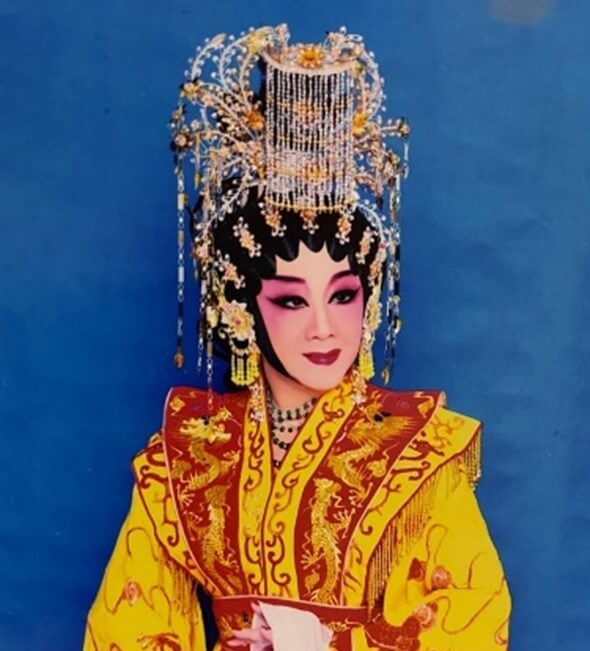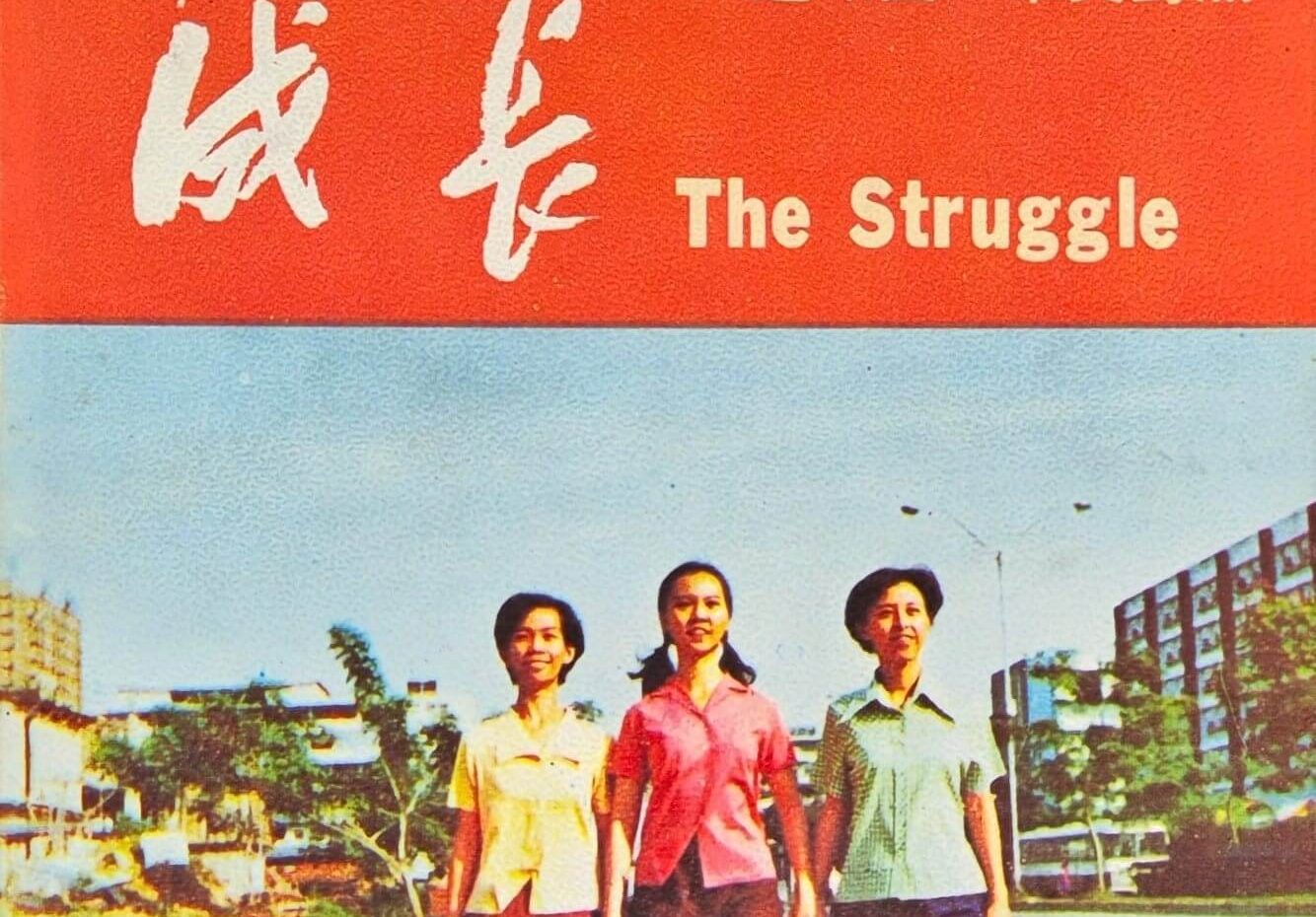TOY Factory and Nine Years Theatre: Innovative Chinese-language theatre groups
After emerging from a slump in the late 1970s, the Singapore Chinese-language theatre scene met with a period of stable economic development in the country and the government’s initiation of cultural and artistic development plans. Local Chinese-language theatre flourished in the 1980s and 1990s, led by prominent figures such as Kuo Pao Kun (1939–2002), with The Theatre Practice being one of the prime examples of this thriving landscape.
Kuo Pao Kun and his establishment of The Theatre Practice not only brought a plethora of locally flavoured plays and performances to the Singapore Chinese-language theatre scene, but also nurtured a new generation of local Chinese-language theatre talent. Among them were Goh Boon Teck, who founded TOY Factory Theatre Ensemble (later renamed TOY Factory Productions) in 1990; and Nelson Chia and Mia Chee, who founded Nine Years Theatre in 2012. These two theatre companies have continued to this day, becoming key players in the local Chinese-language theatre scene.
TOY Factory Theatre Ensemble
In July 1990, shortly after concluding the performance of Lao Jiu at the Theatre Practice, Goh Boon Teck and a group of students established the TOY Factory Theatre Ensemble (commonly known as TOY Factory) and staged The Bull over the Rainbow.
As one of Singapore’s major full-time theatre companies, TOY Factory aimed to create a variety of performance art works in both Chinese and English languages. It was dedicated to continuously innovating and reshaping the artistic landscape and boundaries of Singapore.1 In the 30 years since its establishment, by 2023, TOY Factory had created and staged nearly 90 productions spanning various themes and styles.
As one of the few bilingual theatre companies in Singapore, TOY Factory creates and stages original productions in either Mandarin or English year-round, like Prism (2003/2017).2 It also uses Mandarin to adapt and perform acclaimed Mandarin stage masterpieces from both local and international stages, like I Have a Date with Spring (1995/1999) and Mad Phoenix (2003).
These are the main performance features of TOY Factory’s Chinese-language work:
1. Portraying local performing artists
Titoudao is the masterpiece of TOY Factory’s repertoire, written and directed by its artistic director, Goh Boon Teck. It was premiered at Jubilee Hall in the Raffles Hotel in 1994, and was invited to participate in the International Experimental Theatre Arts Festival in Cairo, Egypt that same year.
A multilingual play, it takes inspiration from the playwright’s mother and reflects the tumultuous rise to fame journey of Oom Ah Chiam (“Titoudao”), a renowned artist of the Sin Sai Hong Hokkien opera troupe in the 1960s Singapore.3 The play has been staged multiple times in Singapore (2000/2007/2015) and been invited to perform in cities such as Beijing, Shanghai, and Hangzhou in China (2002). Titoudao was adapted into a 13-episode English television series in 2020, which was dubbed in Mandarin for broadcast. Due to the positive reception, the local television station launched a second season in 2023.
TOY Factory has produced two other stage plays that explore similar themes. The solo performance White Soliloquy (2010/2015) portrays the hardships faced by the local stage and screen artist, Bai Yan (1929–2019), throughout his career. The other, Big Fool Lee (2007), marked the first time that the artistic image of local Cantonese storytelling master, Lee Dai Soh (1913–1989), was fully depicted on stage.


2. Creative spin on Chinese classics
Over the years, adapting classic works of Chinese literature and giving them innovative interpretations on stage has been another approach taken by TOY Factory to explore new paths. Adapted from the “Crab Feast” episode in the classic Chinese novel, Dream of the Red Chamber, The Crab Flower Club was commissioned for the 2009 Singapore Arts Festival, written and directed by Goh Boon Teck. The play depicts the clashes and conflicts among the five women living in a grand mansion as they prepare for a crab feast to celebrate their father’s 60th birthday.4 The play was restaged in Singapore in 2012 and 2022.
Similarly, 7 Sages of the Bamboo Grove (2020)5 and A Dream Under the Southern Bough also continued this unique approach to playwriting and theatrical experimentation. A Dream Under the Southern Bough (a trilogy consisting of titles including The Beginning (2018), Reverie (2019), and Existence (2020)), was commissioned by the Singapore International Festival of Arts for three consecutive years.6
3. Chinese-language musicals
TOY Factory is also committed to staging Chinese-language musicals. In addition to the musical adaptation of the Taiwanese film, Glass Anatomy (2013/2014), TOY Factory has created and staged Chinese-language musicals reflecting local life in Singapore, such as December Rains (2010/2015) and Innamorati (2014). It also produced the musical, 881 the Musical (2011), adapted from the movie of the same title, showcasing local getai culture, establishing a distinctive style in musical theatre creation and performance.
Nine Years Theatre
Nine Years Theatre was founded in 2012. One of its co-founders, Nelson Chia, was previously a full-time actor at The Theatre Practice and associate artistic director at TOY Factory. As a Singapore Chinese-language theatre troupe in a multicultural environment, Nine Years Theatre sees Chinese culture as the foundation of its work rather the centre of its practice, and works hard to establish a theatre troupe that blends diverse cultures.7 Its performances are focused on reinterpreting classic works.
Since its inception, it has presented numerous classic works from the rich treasury of drama, both locally and internationally. Examples include Who’s Afraid of Virginia Woolf? (2012), by American playwright Edward Albee (1928–2016), Twelve Angry Men (2013), by Reginald Ross (1920–2002), and Art (2014) by French playwright Yasmina Reza (2014). These three productions were commissioned by Huayi Festival for three consecutive years.
In addition, Nine Years Theatre has consistently introduced representative theatrical masterpieces from different periods and styles around the world. These include An Enemy of the People (2014), by Norwegian playwright, Henri Ibsen (1828–1906), often regarded as the father of modern drama, Tartuffe (2015), by French classical playwright Molière (1673–1817), The Lower Depths (2015), by Russian realism playwright Maxim Gorky (1868–1936), Red Demon (2016), by Japanese playwright Noda Hideki, Red Sky (2016), by Taiwanese playwright Stan Lai, Dear Elena (2019), by Russian playwright Lyudmila Razumovskaya. Nine Years Theatre also performed in Mandarin the Hong Kong adaptation of Love Letters (2019) written by American playwright A.R. Gurney.
Nine Years Theatre’s reinterpretation of world theatrical classics sometimes also reflected its unique but deliberate choice of Chinese translated titles for their productions. For example, they used the element of a play within a play to adapt Shakespeare’s King Lear into Lear is Dead (2018), as the Chinese characters “王” (“king”) and “亡” (“death”) are homophones. Another example is the work of Swedish playwright, August Strindberg’s Miss Julie, adapted into Pissed Julie (2018), as “小姐” (“Miss”) and “小解” (“piss”), are homophones. The theatre also rewrote and subverted the original work of Austrian writer, Franz Kafka (1883–1924), adapting Metamorphosis into Cut Kafka! (2018). It used gender transformation to adapt Johann Wolfgang von Goethe’s Faust into Faust/Us (2019), and the Greek tragedy Oedipus Rex into Oedipus (王命) (2020).
In addition to adapting world theatrical classics, Nine Years Theatre has also produced the local Chinese-language drama classics such as No Parking on Odd Days and The Coffin is Too Big for the Hole (Double Bill, 2017), in Cantonese and Teochew respectively. They also staged a Mandarin adaptation of local English-language playwright Haresh Sharma’s Fundamentally Happy (2017). In 2017, for the first time, Nine Years Theatre adapted local writer Yeng Pway Ngon’s (1947–2021) novel Art Studio into a play of the same title, which was staged at the Singapore International Festival of Arts.

Since 2019, Nine Years Theatre has also focused on developing its own original productions, such as the historical event-based adaptations First Fleet (2019) and Electrify My World (2021), as well as original works like Between You and Me (2022), site-specific performance Windward Side of the Mountain (2022), and the dialogue play, See you, Anniversary (2022).
Nine Years Theatre often collaborates with overseas theatre groups and participates in international theatre festivals. In addition to Who’s Afraid of Virginia Woolf? (24th Macao Arts Festival), it had its joint production of Russian writer Anton Chekhov’s Three Sisters with the American SITI Company at the 2021 Singapore International Festival of Arts. In 2023, it collaborated with Taiwan’s Hsing Legend Youth Theatre to create the science fiction allegory play, Immortal Variables.
Scriptwriting and actor training
The artistic characteristics of TOY Factory and Nine Years Theatre are also reflected in their scriptwriting and actor training programmes.
The Wright Stuff is a scriptwriting incubation programme established by TOY Factory in 2017. The artistic directors of TOY Factory provide one-on-one guidance to help participants develop their ideas. The conceptual creations are ultimately presented through the framework of “NOWplaying@17” in the rehearsal space of the theatre company. Building on this success, the theatre company embarked on another edition of The Wright Stuff in 2019, assisting emerging local playwrights in bringing their works to the stage.
Since its inception, Nine Years Theatre has adhered to the ideal of training leading to creation, incorporating the Suzuki Method of Actor Training and the Viewpoints technique as the foundation for actor training and stage creation.8 Between 2014 and 2021, the company also established the Nine Years Theatre Actors Ensemble, showcasing the unique advantage of autonomous creation through the ensemble model. This was a pioneering initiative in the Singapore theatre scene at the time.
TOY Factory and Nine Years Theatre have successively established themselves as innovative, distinctive Chinese-language companies in the local theatre scene.
This is an edited and translated version of 立足创新,独具特色:“TOY肥料厂”与“九年剧场”. Click here to read original piece.
| 1 | Goh Boon Teck, Xilie si: gu yue jin zhao, jingdian jumu. titoudao, hai jing, lidasha (Singapore: Toy Factory, 2010), 3. |
| 2 | Goh Boon Teck, Xilie si: gu yue jin zhao, 116–209. |
| 3 | Goh Boon Teck, Xilie si: gu yue jin zhao, 8–115. |
| 4 | Goh Boon Teck, Xilie er: sishui yanggang, 102–209. |
| 5 | Lau Si Xian, “Bilei liang ce de keji yu yishu, guan ‘Zhulin qi xian’” [Technology and art on both sides of the barrier — watching The Seven Sages of the Bamboo Grove], Lianhe Zaobao, 6 February 2020. |
| 6 | Frank Fu, “Nian nian nan ke meng, ren ren Chunyu Fen, guan ‘nan ke yi meng zhi ru meng’” [Empty dream every year, everyone is a Chunyu Fen — watching Humiliating Dreams in An Empty Dream], Lianhe Zaobao, 5 June 2021. |
| 7 | Nelson Chia, “About Us”, Nine Years Theatre website. |
| 8 | See the official website of Nine Years Theatre. |
Goh, Boon Teck. Xilie er: sishui yanggang, nüxing ticai jumu. dong du, yong xie hua, yaojing [Book 2, A Soft But Stronger Gender — Plays About Women: The Eastern Line on My Palm, The Crab Flower Club, Spirits]. Singapore: Toy Factory, 2010. | |
Goh, Boon Teck. Xilie si: gu yue jin zhao, jingdian jumu. titoudao, hai jing, lidasha [Book 4, A Tale of Histories — Plays of Epical Proportion: Titoudao, Prism, Big Fool Lee]. Singapore: Toy Factory, 2010. | |
Quah, Sy Ren. Xiju bainian: Xinjiapo huawen xiju 1913–2013 [Scenes: a hundred years of Singapore Chinese language theatre 1913–2013]. Singapore: Drama Box, National Museum of Singapore, 2013. |










